‘I just have a feeling it’s not gonna stop.’
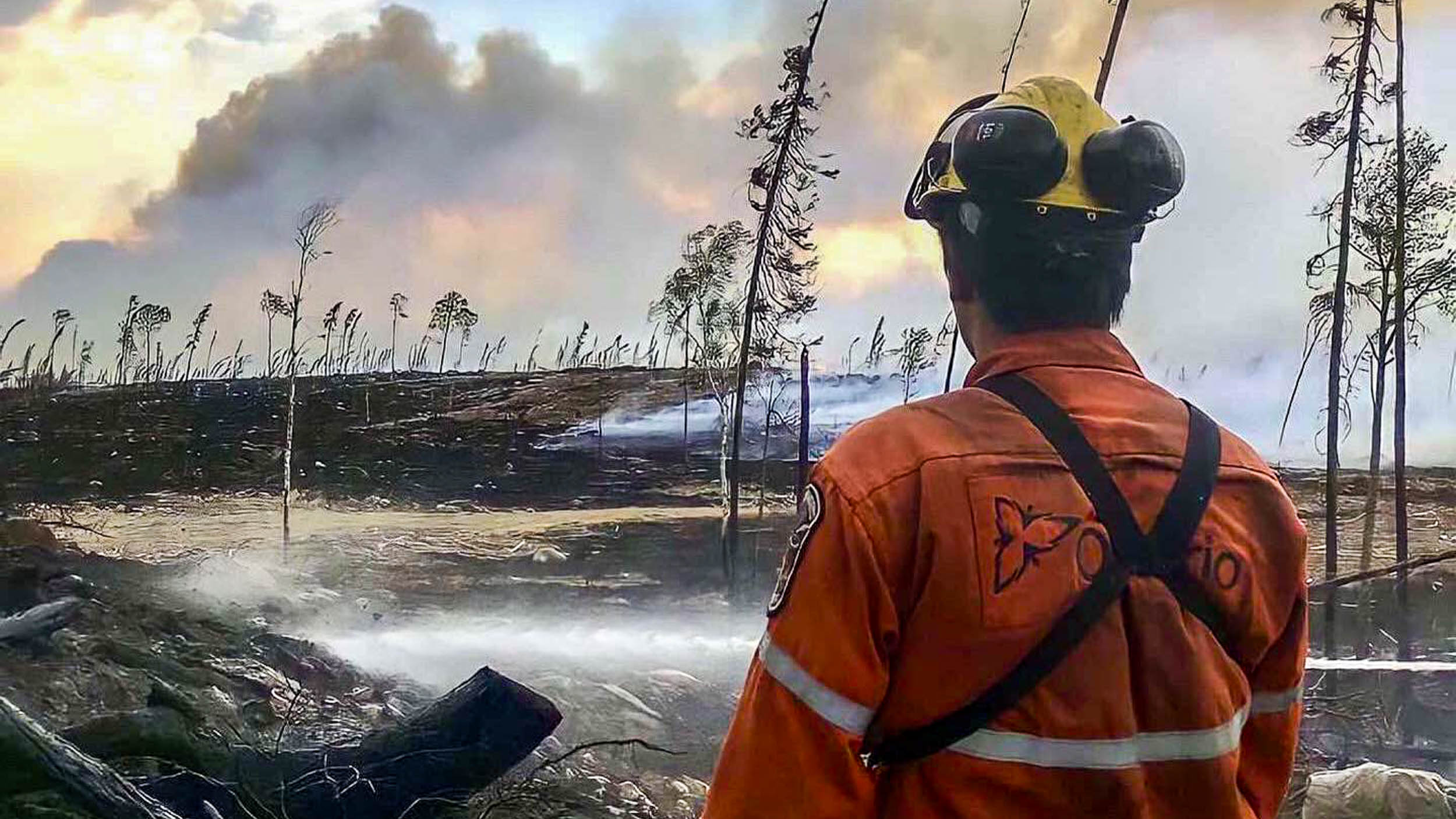
caption
Firefighter Logan Lefebvre looks over a fire in Cat Lake, Ont., in 2021.On the fire line — and the front line of climate change — with a forest firefighter
Logan is a 26-year-old former fire ranger, currently in the final month of the Indigenous Teacher Education Program at Nipissing University. Logan is a proud member of the Pikwakanagan First Nation.
As a kid, Logan’s family of four moved around a lot. His mother was pursuing a medical degree, which took them all over Ontario: from Mattawa to Ancaster and then back north to Thunder Bay. Eventually, they ended up in Sudbury, where the family laid down roots and still live today.
Growing up, he loved spending time outdoors at his grandparents’ camp and fishing in Algonquin Park. He also loves playing hockey – a passion that’s shaped much of who he is today.
He attended Carleton University where he majored in Canadian Studies and minored in Indigenous Studies. Logan learned about forest firefighting from friends at school and thought it would make for an ideal summer job and a gateway into structural firefighting, which he had always wanted to do.
After two seasons fighting fires in the northern Ontario community of Sioux Lookout, he decided he needed a more stable job and he went back to school – just before Canada’s record-breaking 2023 fire season.
I think the best part for me was just popping in a helicopter and going to a fire. That was probably the coolest thing. I’d never flown in a helicopter before and then that was my day job for a whole summer. I was up in Sioux Lookout, which was like 16 hours away from Sudbury, for five months, and it was hard being away from family for that long.
Sioux Lookout was a nice little spot. On our base, we had bunk houses with a common area, a TV, and a big kitchen. It was kind of like a dorm room. For a majority of the fires, we would get flown out of Sioux Lookout to one of the reserves up north and then from there would get flown into the bush via helicopter.
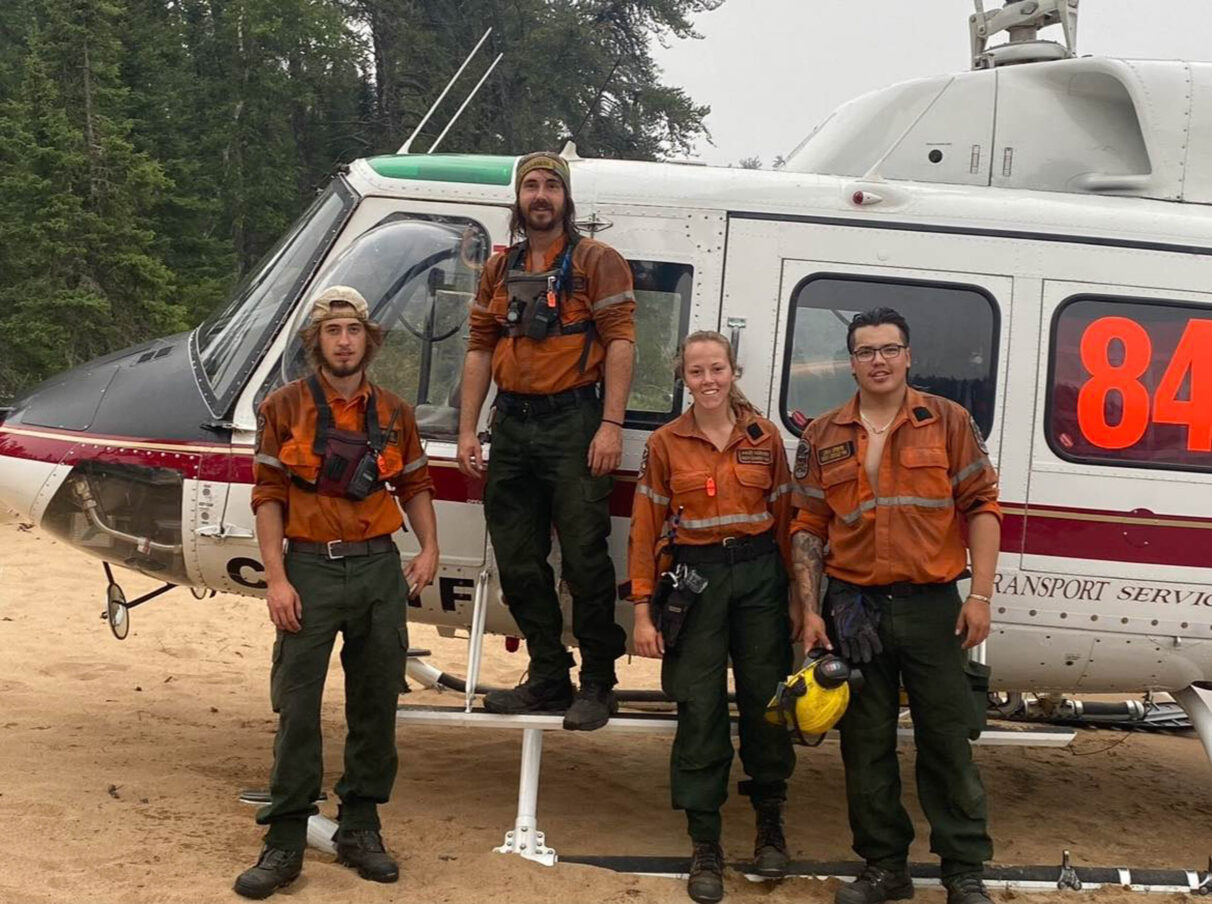
caption
Crew members (from left) Dylan Bertrand, Russell Porta, Hailey Coutier and Logan Lefebvre.You were given a one-man tent that you would sleep in, and then you were given a bug tent where we would hang out a majority of the time. You’re basically camping in the bush for two weeks on the fire line, just trying to keep the black from the green.
It was different, but I enjoyed it. But, as much as it’s enjoyable, it’s hard work: all the heavy lifting you had to do, using the chainsaws. You had to take the job seriously because anything could happen, right?
I’m in the bush fighting forest fires. If someone wasn’t taking things seriously, someone could get seriously hurt. You gotta think: you’re in the bush for two weeks, you gotta take care of yourself. If you hurt yourself in any way you gotta report it because if you’re trying to push through it, you might be pulling your team down.
I remember we went a period of like 37 days out of 42 that we were on the fire line.
One of these crazy days, there were 70-kilometre winds. I looked at my crew leader, and I was like, “Hey, it’s getting a little smoky up here, eh?” Then, all of a sudden, we’re running through this thick wall of smoke and you can hardly breathe, you could hardly see. It got to a point where you were just running to try to get through that.
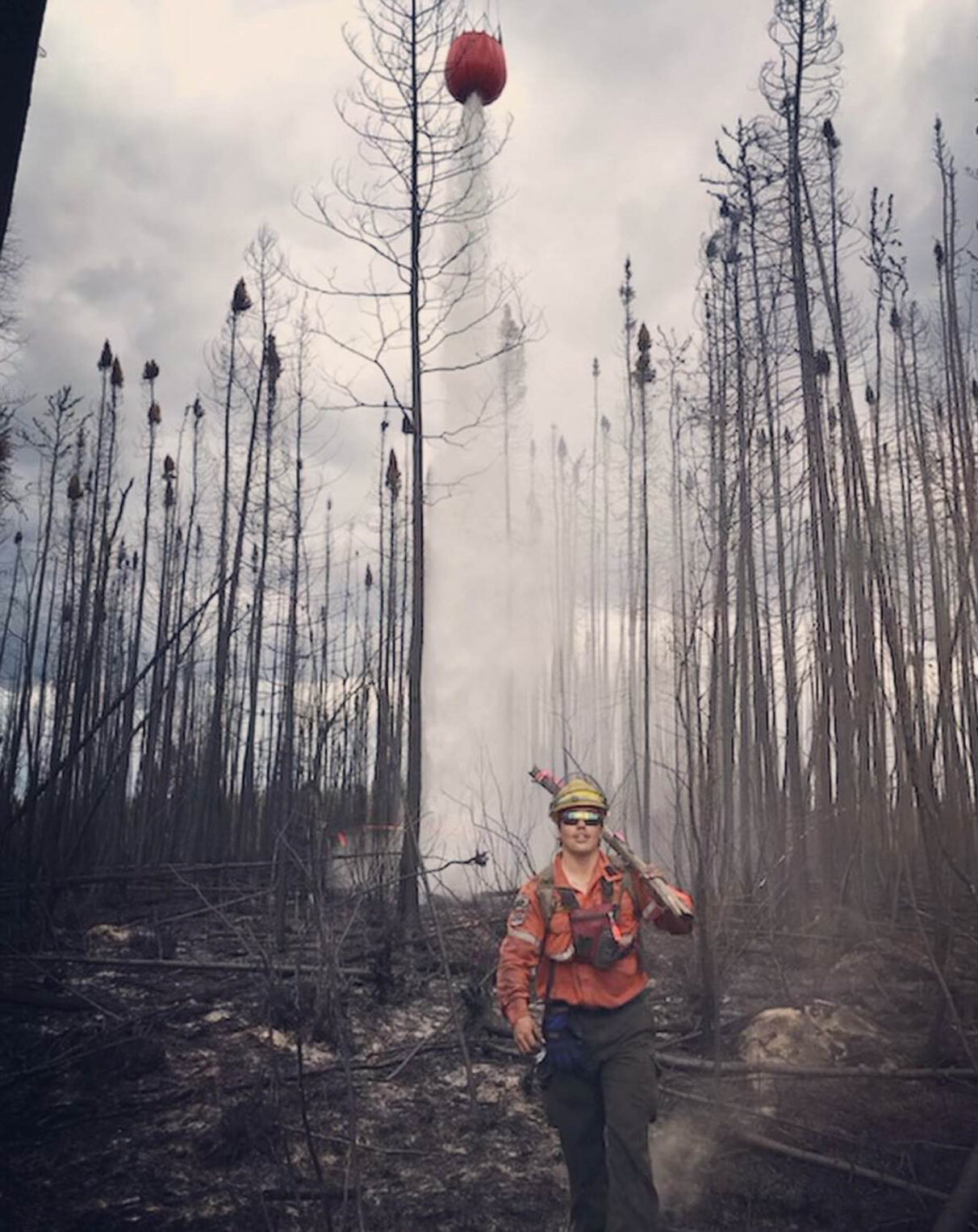
caption
A firefighter works on a fire in Bearskin Lake, Ontario in 2021.To see how quickly the fires were jumping across the line was nuts. We were racing, racing against time to put out the fire. The crackling of the trees, water bombers flying over top, helicopters dropping buckets in front of you – just chaos. But at the same time, it was a wicked, wicked experience.
It was probably the longest two weeks that we had that year. It was just nuts.
Some days got tough. If it was a 16-hour day or something, it was hard because after maybe five days, you’re just like, “Holy moly, when can I go home?” But for the most part, I was always pretty good when we were on a fire.
I think the only time when things kind of got shitty for me was when I got back from a fire and learned that my grandfather passed away. So, I ended up going back home for a week. The people I worked with were all pretty understanding: they gave me my time off and allowed me to go home. They wanted the best for their crew, and they wanted the best for each other. My mind was all over the place. But, for the most part, my mind was pretty good because I had one of the better crews.
A week later we were up in Cat Lake.
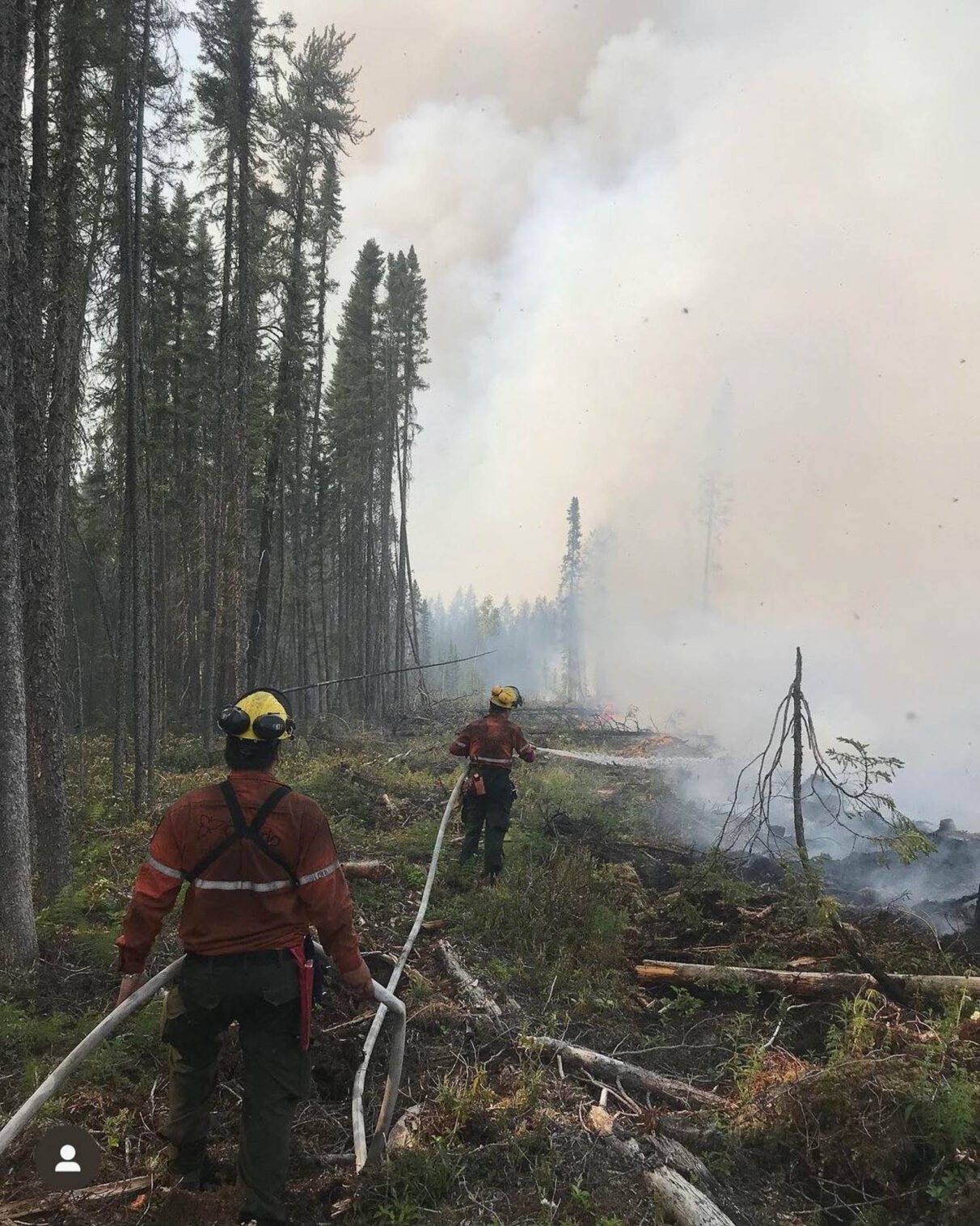
caption
Firefighters work on a fire in Cat Lake, Ontario in 2021.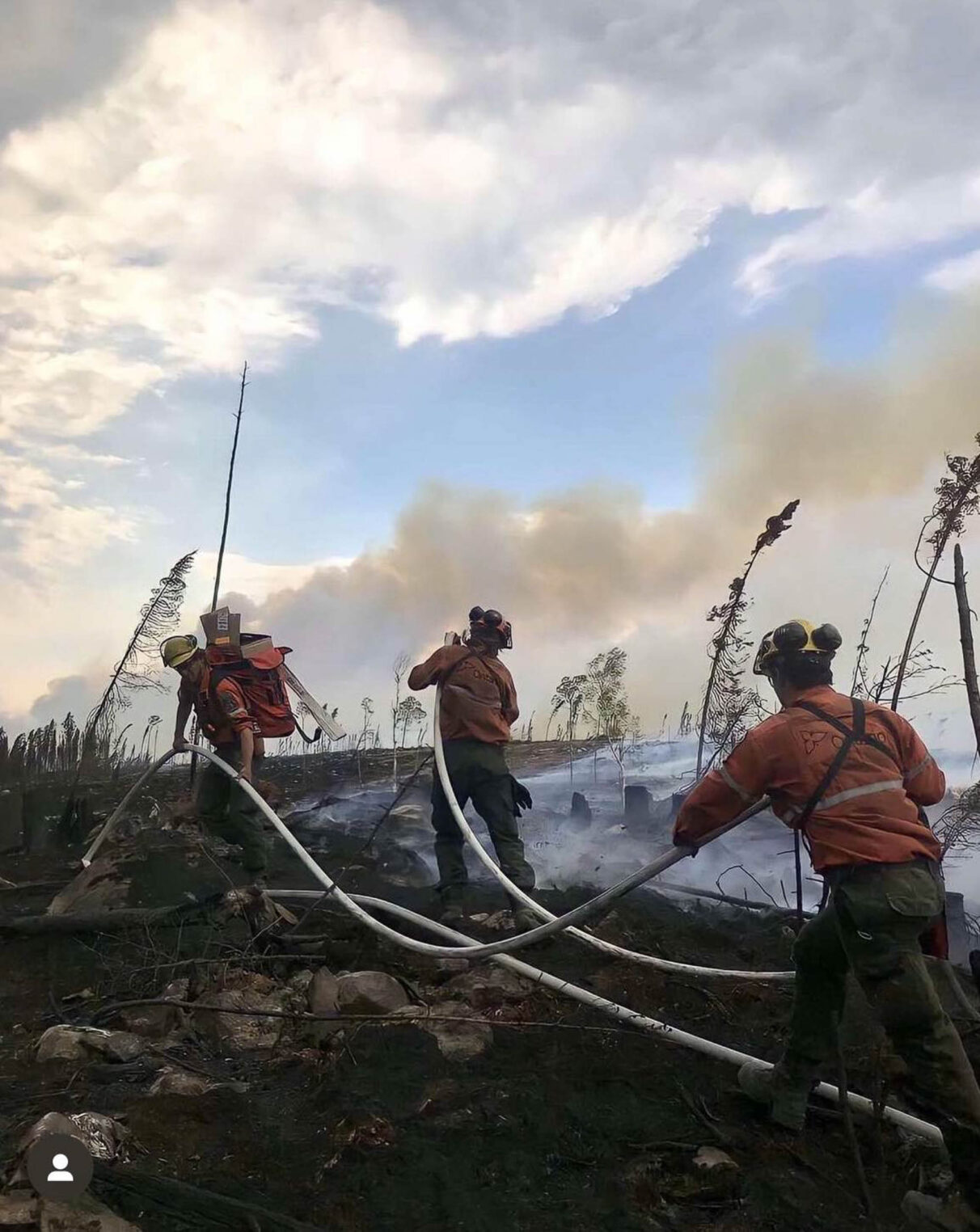
caption
Firefighters work on a fire in Cat Lake, Ontario in 2021.It’s just crazy to see the difference between my community and a northern Indigenous reserve up there. In a lot of places up north, there’s a lack of resources. There’s no main road after Pickle Lake; you have to fly in. What stuck out to me was that the people who lived in the community had to get emergency evacuated. But some of the elders were still there, taking time out of their day to cook meals for all the people on the fire crew. And it was really neat for me personally; they’re cooking bannock, they’re cooking moose and I’m like “Oh yeah, this is heaven.”
Forest fires are just gonna keep getting worse. Maybe some of those northern communities could have a full Indigenous crew that could be on the spot right away. And it’s going to start affecting bigger communities, not just up north. Look at B.C., already there are fires right around Kelowna and a lot of those towns are getting burnt down. I just have a feeling it’s not gonna stop.
I think it’s gonna be a pretty hot, dry summer again, but you never know. That was one thing about the job, you didn’t know how busy your summer was gonna be until you were there. If it’s hot, you’re gonna be busy, if not, it’s kinda so-so, like my second summer we didn’t even go on one fire. I considered doing it again the following year, but I was away from family for four or five months, and I was just like: “No, I can’t do this.” I could just go work for another job closer to home and make probably the same amount of money.
If you wanna keep people around year after year, you gotta reward them for all their work. You’re working four or five months out of the year and then, after that, you gotta find another job or you’re living off EI. There are guys in this program, they’ve been doing it for so long and they’re on the same pay as when they became a crew leader. How is that even possible? They’re sacrificing their body and themselves to help save forests. You‘d think they’d be getting paid a little bit better.
About the author

Logan Lefebvre as told to Ben Harris